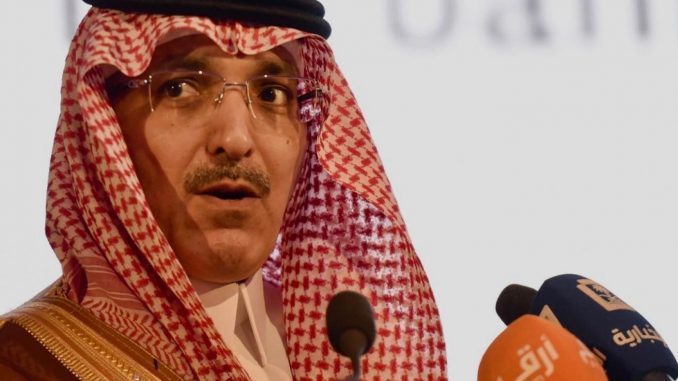
Saudi Arabia will take strict and painful measures to deal with the economic impact of the coronavirus pandemic, the finance minister said on Saturday, adding that “all options for dealing with the crisis are open”, according to a report by Reuters.
“We must reduce budget expenditures sharply”, Mohammed al-Jadaan said in an interview with Al Arabiya TV, adding that the impact of the new coronavirus on Saudi Arabia’s state finances will appear from the second quarter of the year.
“Saudi finances need more discipline and the road ahead is long,” he said.
One measure would be to slow down government projects, including mega-projects, to reduce spending, he said.
The world’s largest oil exporter is suffering from historically low oil prices, while measures to fight the coronavirus are likely to curb the pace and scale of economic reforms launched by Crown Price Mohammed bin Salman.
Saudi Arabia’s central bank foreign exchange reserves fell in March at their fastest rate in at least 20 years, hitting their lowest level since 2011, while the kingdom slipped to a $9 billion budget deficit in the first quarter as oil revenue collapsed.
Jadaan said last month that Riyadh could borrow $26 billion more this year while it would draw down up to $32 billion from its foreign reserves to finance the deficit.
On Saturday Jadaan told Al Arabiya Saudi Arabia had used some revenue from investments to plug the deficit, and that the crisis presented investment opportunities.
Jadaan noted the country had introduced stimulus measures aimed at preserving jobs in the private sector and safeguarding the provision of basic services.
Trump may make Riyadh pay for US losses
In another context, US President Donald Trump is considering all options available to him to make Saudi Arabia pay for the oil price war that it started, reported Oilprice.com last Tuesday.
In an article written by Simon Watkins, the website said that it had approached senior figures close to the Trump administration last week and they passed on this information. Many senior officials close to Trump, it pointed out, want Saudi Arabia to pay for its actions in every way for angering the US and inflicting economic damage on US companies, as well as betraying the long-standing relationship between the two countries.
“This relationship,” said Oilprice.com, “was established in 1945 between the US President Franklin D Roosevelt and the Saudi King at the time, Abdulaziz.”
According to Watkins, the 1945 agreement was that, “[The] US would receive all of the oil supplies it needed for as long as Saudi Arabia had oil in place, in return for which the US would guarantee the security of the ruling House of Saud.”
He explained further that, “The deal has altered slightly since the rise of the US shale oil industry and Saudi Arabia’s attempt to destroy it from 2014 to 2016 in that the US also expects the House of Saud to ensure that Saudi Arabia not only supplies the US with whatever oil it needs for as long as it can but also that it also allows the US shale industry to continue to function and to grow.”
To protect thousands of US workers in the oil companies, Oilprice.com said that Trump might impose taxes on Saudi oil exports to the US.
Watkins expects that one of Trump’s options will be to remove US protection from the House of Saud. He cited Trump’s threats to the ruling family that it would not remain in power more than two weeks without America behind it.
“Trump has a very good point,” he concluded, “as it is fair to say that without US protection, either Israel or Iran and its proxy operatives and supporters would very soon indeed end the rule of the House of Saud.”



